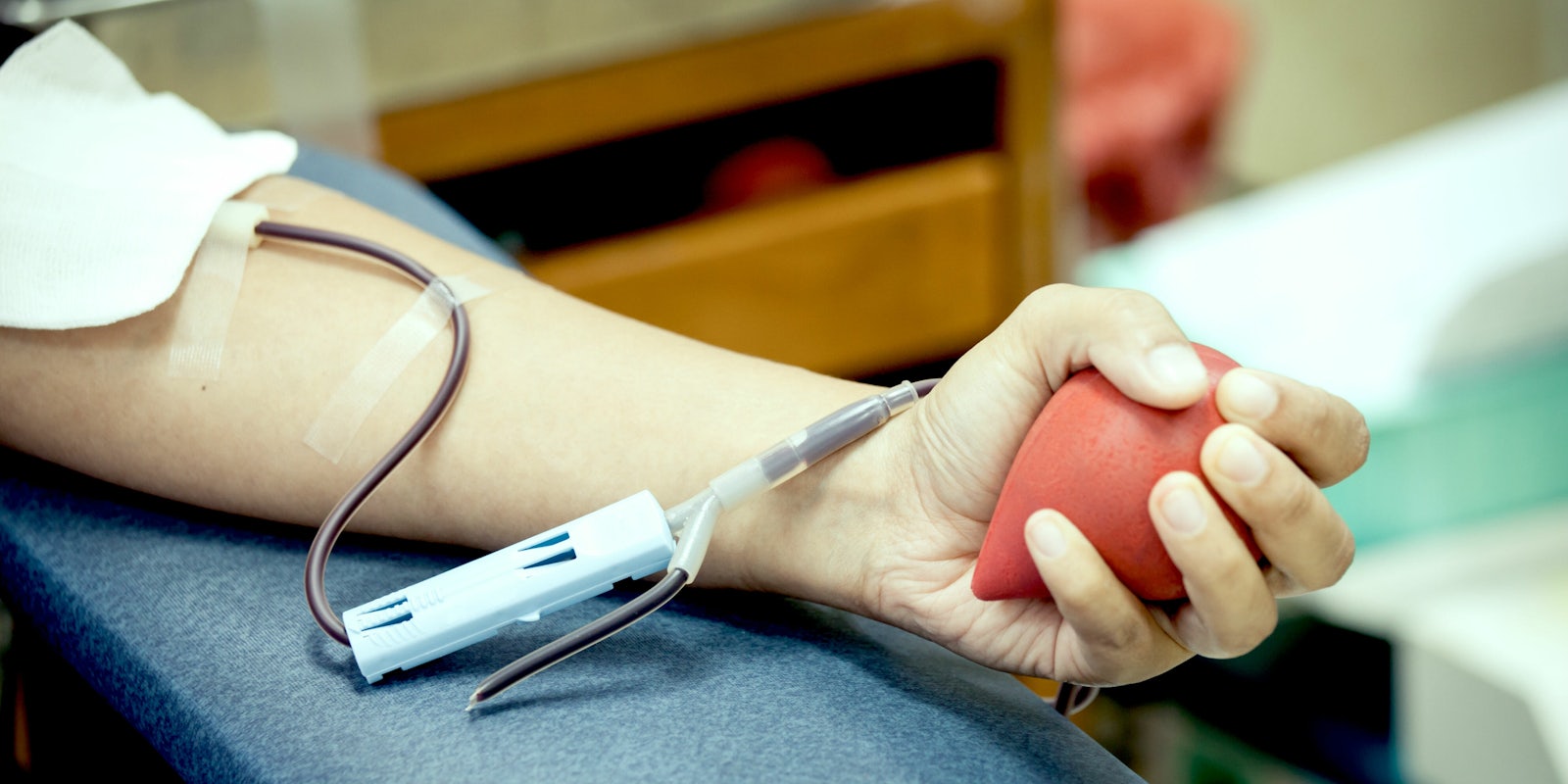On Sunday night, during the Route 91 Harvest Music Festival in Las Vegas, 59 people were killed and more than 527 were wounded after gunman Stephen Paddock began shooting concertgoers from the Mandalay Bay Casino. Hundreds are now recovering in hospitals around the greater Las Vegas area, and people across Twitter are eager to help in the wake of the deadliest mass shooting in modern U.S. history.
Since victim identities have yet to be released, authorities are saying one of the best ways to help right now is to give blood. The Las Vegas Metropolitan Police Department has already encouraged citizens to donate, with the police department telling potential donors to visit the Labor Health and Welfare Clinic in Las Vegas if they’re in the nearby area.
If you would like to donate blood for the injured victims of the Strip shooting visit the Labor Health & Welfare Clinic, 7135 W. Sahara.
— LVMPD (@LVMPD) October 2, 2017
For those outside of the city’s limits, there are several United Blood Services (USB) locations across Nevada, too, where you can donate blood. Donated blood is regularly shuffled around from area to area, making any donation across the state absolutely vital.
The UBS list has since gone viral on Twitter, with everyone from actors to reporters sharing the six locations.
You can donate blood in Las Vegas by visiting any of the following locations. pic.twitter.com/nRKNdpQvmK
— Ben Schwartz (@rejectedjokes) October 2, 2017
We desperately need blood at the United Blood Center at 6930 W Charleston and 601 Whitney Ranch Dr. in Henderson.
— Steve Sisolak (@SteveSisolak) October 2, 2017
https://twitter.com/sharonainvegas/status/914756240554598400
As for potential blood donors who can’t come to Nevada, donating blood now is more important than ever. Blood shortages are common across the U.S., and in the wake of major disasters or terrorist attacks, blood donations are often transported across areas to reach patients in need. Donating in your local city can help keep plasma replenished—so even if your blood doesn’t reach Las Vegas, it can give clinics the buffer they need to send someone else’s blood across state lines.
https://twitter.com/BabiesWithGuns/status/914817335806001154
You don’t even need to live in the Nevada area. Blood banks across the U.S. go out of there way to ship out blood to those in need. Donate.
— blue blazes (@blueblazes) October 2, 2017
Before heading over to a clinic to give blood, however, there are a couple of things to consider. According to the Las Vegas Sun, donors need an ID, a list of European countries they’ve visited since 1980, and a list of countries visited in the past year. There are also several risk factors that can lead to a donor being turned away, including if they have a cold, if they’ve recently had a piercing, if they are pregnant, or any person that had hepatitis after turning 11.
The FDA also recommends that “a man who has had sex with another man during the past 12 months” be deferred. (This year-long restriction is an “improvement” from the FDA’s initial life-long ban on blood donations from those who’ve self-reported gay sex).
The Red Cross lists more qualifications on its official website, including eligibility based on previous donations. Blood, for instance, can be donated every 56 days, whereas plasma can be donated every 28 days and platelets can be sent in once a week. Most states require donors to be at least 17 years of age and weigh 110 pounds. For more information on local blood drives, the Red Cross lists locations on its website.
Editor’s note: This post has been updated to reflect the latest death toll in the Las Vegas shooting.


